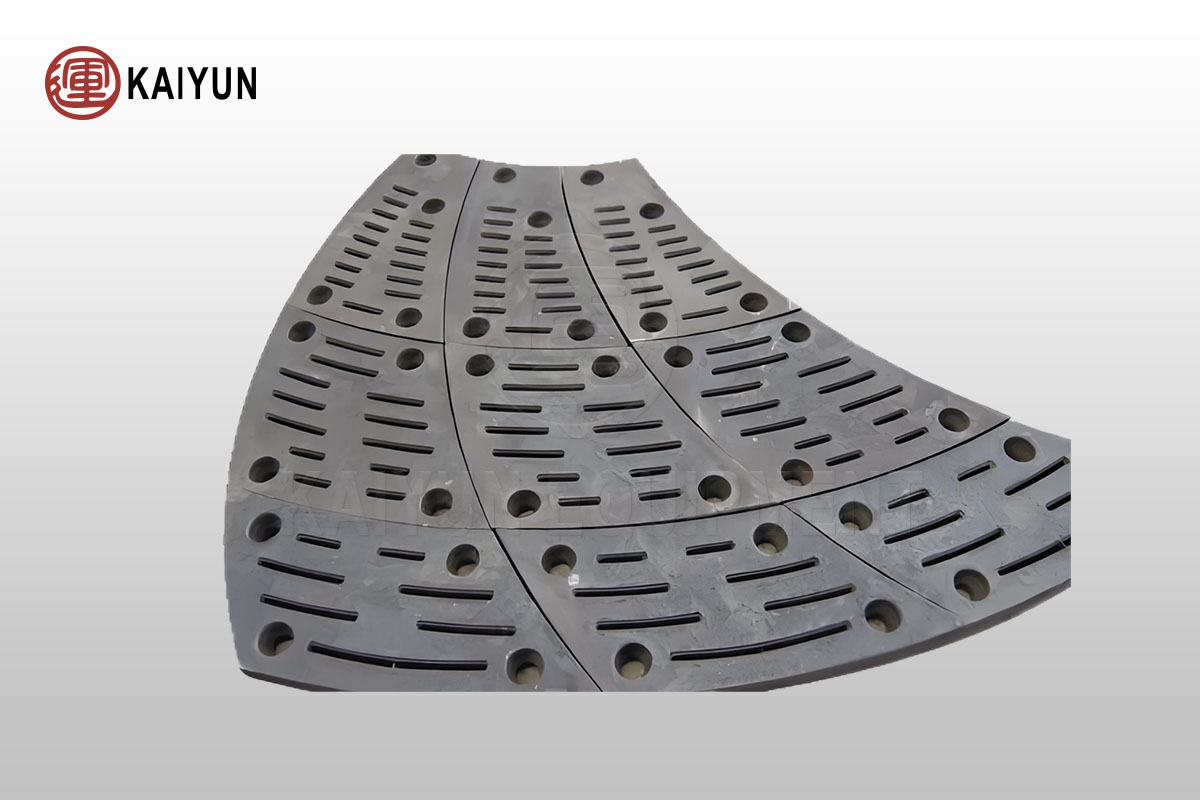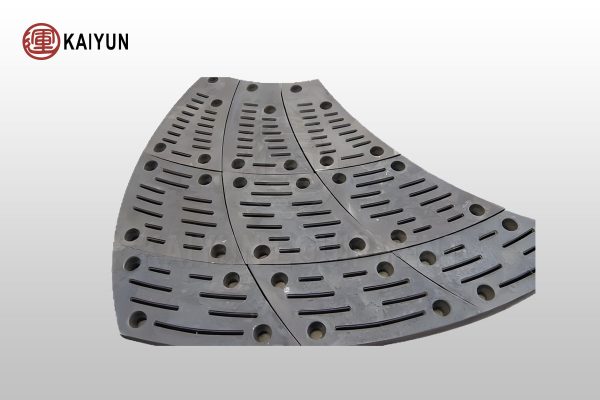Product Introduction
Rubber liners, as crucial protective and optimization components within ball mills, are designed to encompass several key elements: end liners (with grid types featuring grid plates), end lifter bars, central rings (with grid types featuring central guard plates), filler materials, cylinder lifter bars (also known as pressure bars), cylinder liners, manhole doors, and fasteners. This comprehensive system is designed to enhance both the efficiency and durability of the ball mill.
Table of Contents

Core Advantages and Features
Low Energy Consumption
The use of rubber liners significantly reduces the energy consumption of ball mills. Their lightweight nature decreases friction during operation, resulting in lower power consumption.
High Wear Resistance
Made from high-quality rubber materials, these liners offer excellent wear resistance, capable of withstanding prolonged grinding and impact. This extends the replacement cycle of the liners and reduces maintenance costs.
Impact Resistance
The elastic properties of rubber allow it to absorb part of the impact energy, reducing the likelihood of liner damage and enhancing equipment stability during operation.
Low Noise
Compared to metal liners, rubber liners generate significantly less noise during operation. This creates a better working environment and benefits long-term equipment maintenance.
Ease of Installation and Replacement
The lightweight and flexible nature of rubber liners make them easier to install and replace, minimizing downtime and improving production efficiency.
Steel Ball Savings
The optimized design of rubber liners effectively reduces steel ball wear by controlling the movement trajectory of grinding media, thus enhancing grinding efficiency and lowering operational costs.
Application Areas
Rubber liners are primarily used in grid-type, overflow-type, and multi-compartment ball mills, making them especially suitable for wet grinding processes. In recent years, with stricter control over metal impurities (such as iron), rubber liners have also found applications in dry grinding, particularly in industries where high purity of the final product is essential.
